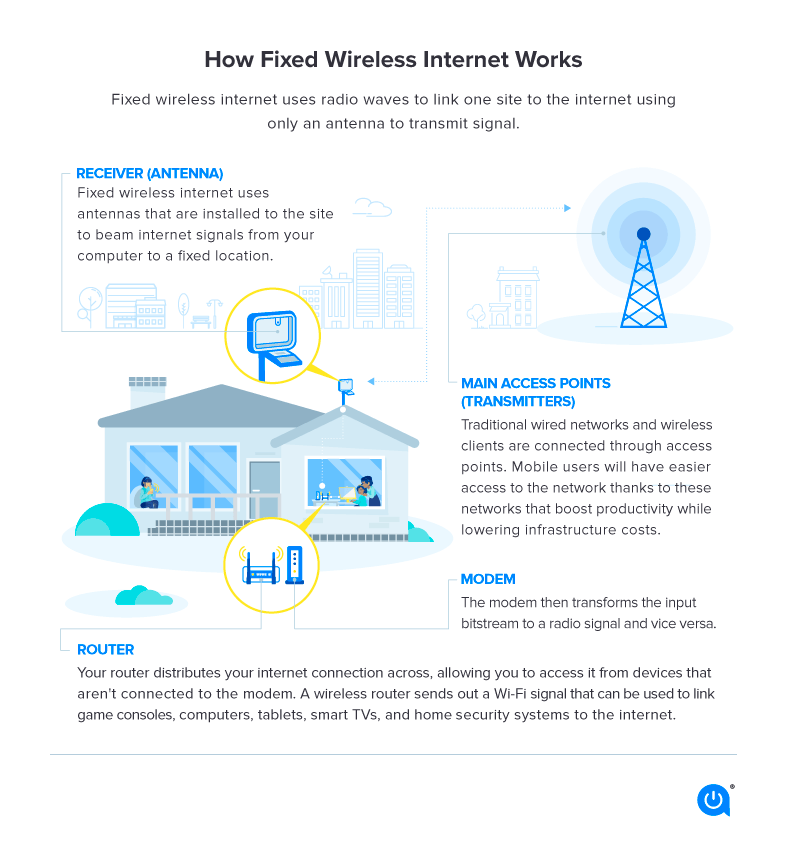
Fixed wireless internet providers
Related pages
-
Featured
![5G is on the rise: Is this the tech that will change everything?]() 5G is on the rise: Is this the tech that will change everything? Lisa Iscrupe — 6 min read
5G is on the rise: Is this the tech that will change everything? Lisa Iscrupe — 6 min read -
Featured
![T-Mobile is the new internet provider on the block: 30 million homes now eligible to sign up]() T-Mobile is the new internet provider on the block: 30 million homes now eligible to sign up Robin Layton — 1 min read
T-Mobile is the new internet provider on the block: 30 million homes now eligible to sign up Robin Layton — 1 min read -
Featured
![Internet connection types: DSL, Cable, Fiber]() Internet connection types: DSL, Cable, Fiber Lisa Iscrupe — 6 min read
Internet connection types: DSL, Cable, Fiber Lisa Iscrupe — 6 min read
Latest
-
Wednesday, April 24, 2024
Why do you need an Optical Terminal Network?Taylor Gadsden — 2 min read
-
Tuesday, April 23, 2024
Worried about losing your TV signal? This is how to keep your satellite dish cleanDavid Anders — 6 min read
-
Tuesday, April 23, 2024
How to change your Wi-Fi network passwordCamryn Smith — 2 min read

Subscribe to our weekly newsletter for internet news and promos
By subscribing, you agree to receive Allconnect newsletter and promotional emails. Your privacy is important to us.









